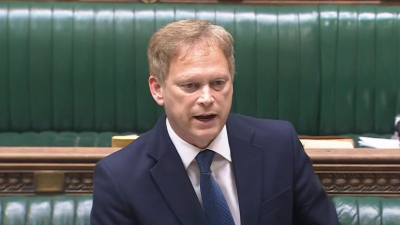Philip Arps
Philip Arps is a New Zealand businessman known for his involvement in far-right extremist activities. Born on February 3, 1968, Arps gained notoriety for his association with white supremacist ideologies and his participation in spreading hate speech and propaganda.
Philip Arps
Arps first gained public attention in March 2019 when he was convicted for distributing footage of the Christchurch mosque shootings, which occurred on March 15, 2019, resulting in the deaths of 51 people and injuring dozens more. He shared a video of the attack, which was live-streamed by the shooter, on social media platforms with the intention of glorifying the violence and promoting anti-Muslim sentiments.
Prior to his involvement in extremist activities, Arps operated a business in Christchurch involved in the manufacturing and sale of insulation products. However, his extremist views and actions led to widespread condemnation and resulted in repercussions for his business ventures.
In June 2019, Philip Arps was sentenced to 21 months in prison for distributing the mosque shooting footage under New Zealand's laws against inciting racial hatred and distributing objectionable material. His actions were deemed not only offensive but also dangerous, contributing to the spread of extremist ideologies and posing a threat to public safety and social cohesion.
Arps' case highlighted the challenges faced by authorities in combating the rise of far-right extremism and hate speech, particularly in the age of social media where such content can spread rapidly and reach a wide audience. His conviction served as a warning about the serious consequences individuals face for promoting violence and intolerance.
Despite his imprisonment, Philip Arps remains a symbol of the ongoing struggle against extremism and the importance of countering hate speech and radicalization. His case underscores the need for continued efforts to address the root causes of extremism and promote tolerance, diversity, and inclusion in society.
In conclusion, Philip Arps' involvement in far-right extremist activities and his dissemination of hate speech have had significant repercussions both personally and socially. His conviction serves as a reminder of the importance of combating extremism and fostering a culture of respect and acceptance in diverse communities.
Certainly, here are some concluding remarks about Philip Arps:
Philip Arps has emerged as a prominent figure in the context of far-right extremism, particularly in the aftermath of the Christchurch mosque shootings. His actions in distributing footage of the attack and espousing hateful ideologies have underscored the dangers posed by individuals who promote violence and intolerance. Arps' conviction and subsequent imprisonment serve as a stark reminder of the legal consequences awaiting those who engage in such behavior. However, his case also highlights the broader challenges faced by societies in combating the rise of extremism and hate speech, especially in the digital age where such content can spread rapidly. Ultimately, Philip Arps stands as a cautionary tale, emphasizing the importance of collective efforts to promote tolerance, diversity, and social cohesion, while simultaneously addressing the root causes of radicalization. His case serves as a rallying point for advocates of peace and inclusivity, reaffirming the values of respect, understanding, and acceptance in multicultural societies.
I hope this captures the essence of Philip Arps' significance in the context of extremism and the broader societal implications of his actions. Let me know if you need further refinement or additional information.
Philip Arps has not been prominently featured in books, films, series, or websites beyond news coverage of his criminal activities and legal proceedings related to his involvement in distributing footage of the Christchurch mosque shootings. While his case garnered significant media attention, particularly in New Zealand and internationally, there have been no notable fictional or documentary portrayals of him in popular culture. As such, his presence is primarily confined to news articles, legal records, and discussions surrounding far-right extremism and hate speech.






